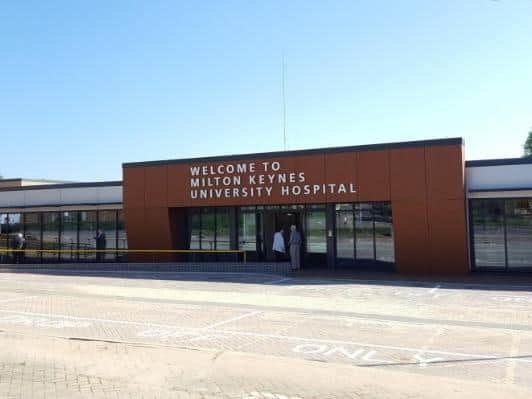A&E visits at Milton Keynes University Hospital rise to highest level since before lockdown
and live on Freeview channel 276
Visits to A&E at Milton Keynes University Hospital rose last month to their highest level since before the coronavirus crisis – but attendances were still lower than in July last year.
NHS England figures show 9,725 patients visited A&E at Milton Keynes University Hospital NHS Foundation Trust in July.
Advertisement
Advertisement
That was the highest number since February, and a rise of 15 per cent on the 8,485 visits recorded during June.


However, it was still 25 per cent lower than the 12,884 patients seen in July the previous year.
Milton Keynes University Hospital is open for business and local people are encouraged to use their services as and when they need them, with confidence that the hospital is taking every possible precaution to keep them and their staff safe.
Across England, A&E departments received 1.6 million visits last month.
Advertisement
Advertisement
That was an increase of 13 per cent compared to June, but still 30 per cent fewer than the 2.3 million seen during July 2019.
NHS guidelines state at least 95 per cent of A&E patients should be seen, treated and admitted or discharged in under four hours.
Milton Keynes University Hospital saw 98 per cent of visitors in this time, while the average performance across England was 92 per cent.
Dr Nick Scriven, former president of the Society for Acute Medicine, said: “These are worrying times for the NHS given the threat of a second wave of Covid-19 in addition to all of the other pre-existing issues such as bed capacity, staffing, funding and social care provision."
Advertisement
Advertisement
An NHS spokesman said NHS staff have worked "around the clock" to treat 108,000 people for coronavirus since the pandemic escalated in March.
“Now that we are through the first wave, local NHS staff are restoring non-Covid services, which have the capacity to treat those needing urgent, emergency and other essential care," he said.
"Nobody should be put off seeking help from the NHS when they need it, whether through NHS 111, their GP, a pharmacist or hospital.”